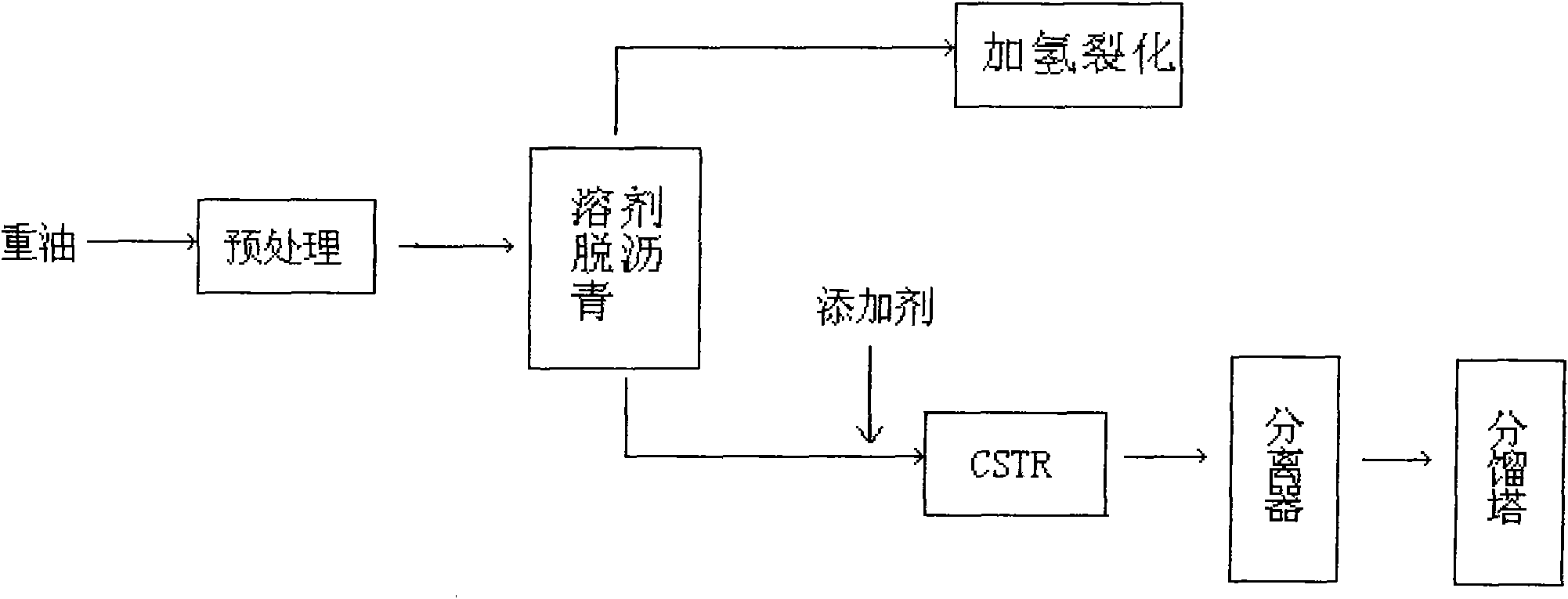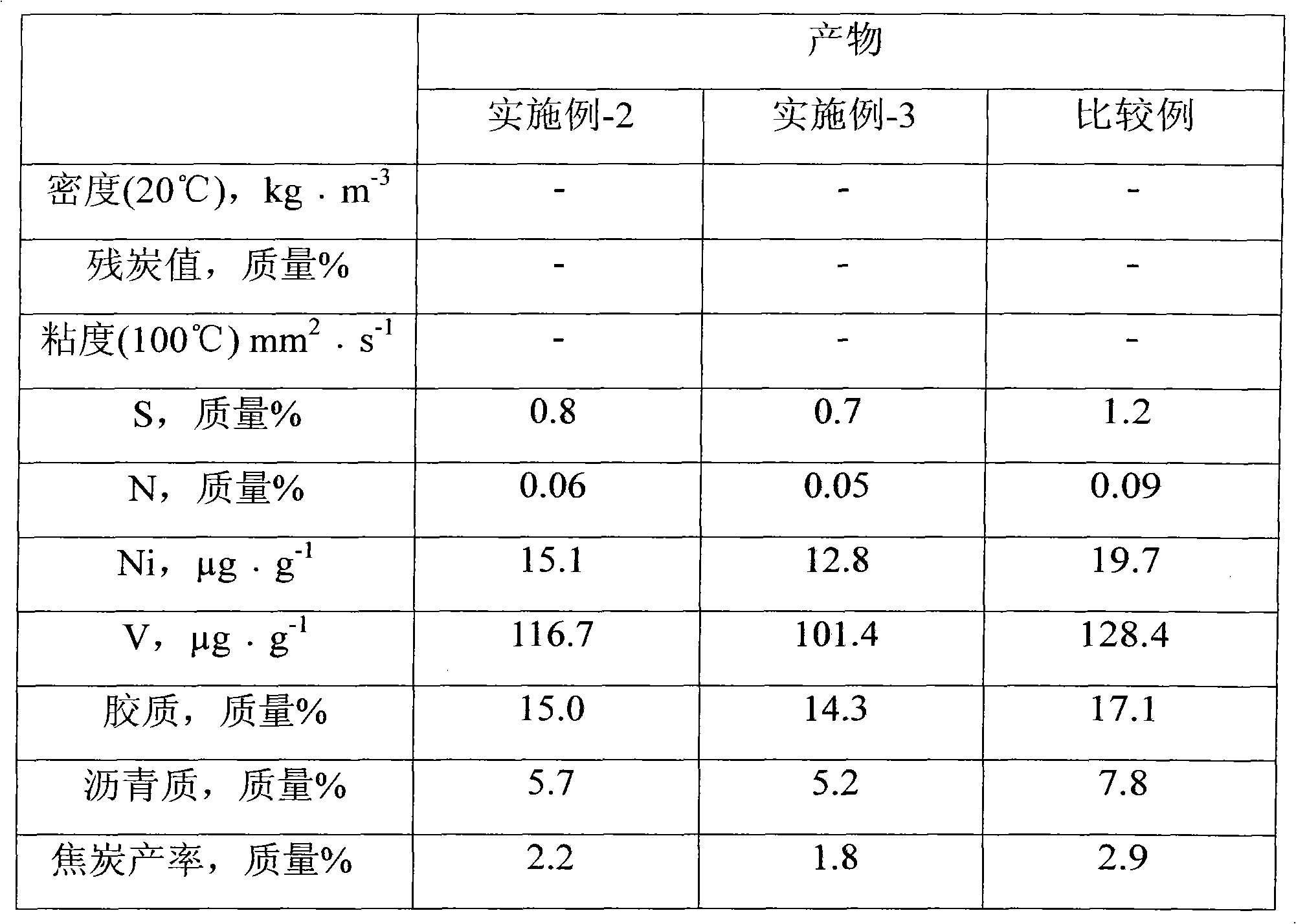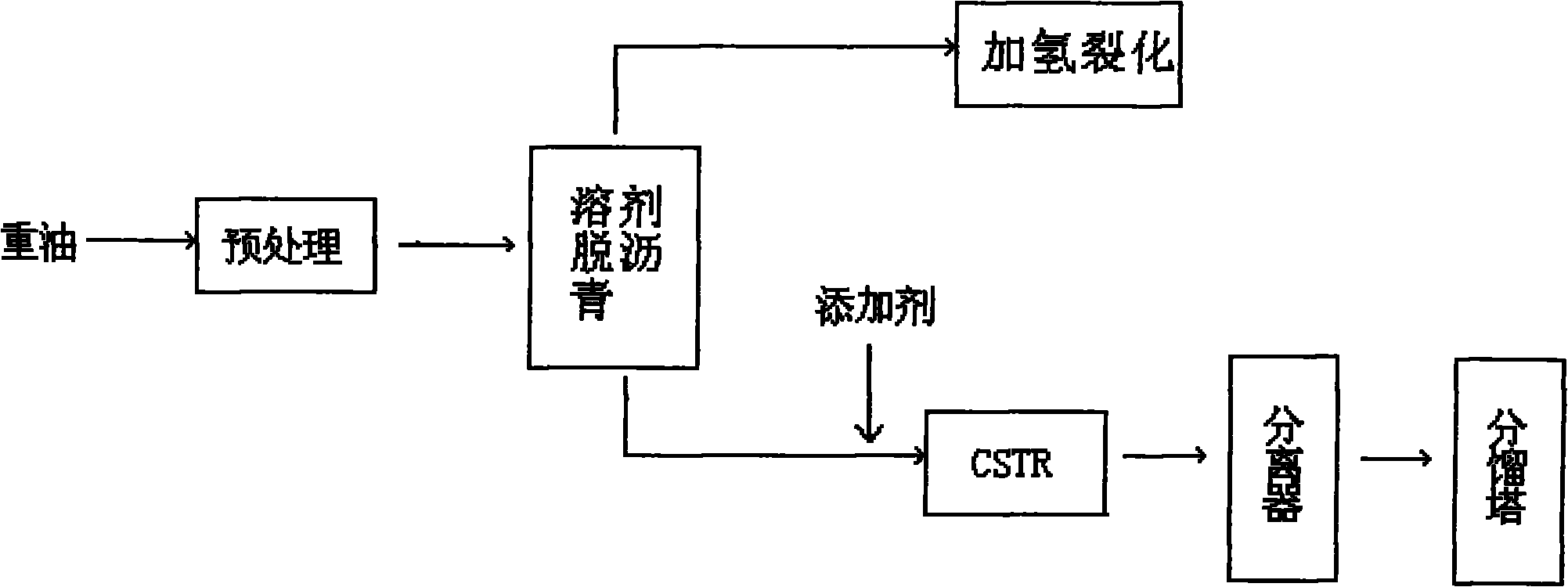Combined process for heavy oil modification
A combination process and heavy oil upgrading technology, applied in the petroleum industry, hydroprocessing process, hydrocarbon oil treatment, etc., can solve the problem of high coking rate, achieve enhanced reaction effect, reduce coking tendency, and improve the ability to remove impurities Effect
- Summary
- Abstract
- Description
- Claims
- Application Information
AI Technical Summary
Problems solved by technology
Method used
Image
Examples
Embodiment -1
[0021] Tahe residual oil is subjected to solvent deasphalting after the same filtration and other treatment as the conventional process. The conditions are conventional solvent deasphalting conditions. The extraction part generally adopts a one-stage extraction process, and can also adopt a two-stage extraction process. It can be deasphalted with propane, butane or pentane. The pressure at the top of the extraction tower is generally 3.2MPa, the temperature at the top of the tower is 70°C, and the solvent ratio (volume) is 10:1.
[0022] Deasphalted oil can be processed by catalytic cracking, hydrocracking and other conventional processes.
[0023] Deoiled asphalt is carried out supercritical treatment again, joins static mixer with tetralin, (keep excessive tetralin, the weight ratio of deoiled asphalt and tetralin is 1: 6), after material heating then, enters CSTR ( Continuous Stirred Tank Reactor), pressurize, heat up and start stirring, the rotation speed is 800 rpm, press...
Embodiment -2
[0025] Using Tahe residual oil as raw material, the steps of solvent deasphalting are the same as in Example-1. Solvent deasphalting and deoiling asphalt are subjected to supercritical treatment, the hydrogen-donating solvent is decahydronaphthalene, the weight ratio of deoiling asphalt and hydrogen-donating solvent is 1:2, the reaction pressure is 35MPa, the reaction temperature is 450°C, and the reaction time is 0.5h ( CSTR is continuous feeding and discharging, and the reaction time is the average residence time of the material). After being processed by the method of the present invention, the reaction results are shown in Table 2.
Embodiment -3
[0027] By the same method of embodiment 2, water is also added when using decahydronaphthalene, and the weight ratio of water and supercritical treatment feed is 1: 1, and reaction result is shown in Table 2.
PUM
 Login to View More
Login to View More Abstract
Description
Claims
Application Information
 Login to View More
Login to View More - R&D
- Intellectual Property
- Life Sciences
- Materials
- Tech Scout
- Unparalleled Data Quality
- Higher Quality Content
- 60% Fewer Hallucinations
Browse by: Latest US Patents, China's latest patents, Technical Efficacy Thesaurus, Application Domain, Technology Topic, Popular Technical Reports.
© 2025 PatSnap. All rights reserved.Legal|Privacy policy|Modern Slavery Act Transparency Statement|Sitemap|About US| Contact US: help@patsnap.com



